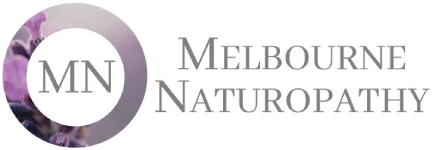Premenstrual syndrome (PMS) is a condition characterised by somatic and psychological symptoms that occur during the week before menses begins and ends within a few days of the onset of bleeding. Approximately 90% of women experience PMS to some degree. PMS should not be confused with dysmenorrhoea, which refers to pain or cramps during menstruation.
Progesterone, oestrogen and their metabolites—secreted in prodigious amounts in the luteal phase ( second half of the menstrual cycle) may be responsible for PMS. Decreased synthesis of serotonin during the luteal phase may also play an important role of this neuroendocrine mechanism in PMS. Premenstrual Dysphoric Disorder (PMDD) is a severe, disabling form of PMS. In PMDD, the main symptoms are mood disorders such as depression, anxiety, tension, and persistent anger or irritability. These severe symptoms lead to problems with relationships and carrying out normal activities. Women with PMDD usually also have physical symptoms, such as headache, joint and muscle pain, lack of energy, bloating and breast tenderness. The symptoms occur during the two weeks before her period and go away when bleeding begins.
Aetiology / Risk factors Factors that can contribute to the incidence of PMS include:
• Personal or family history of depressive mood, anxiety or bipolar disorders
• History of postpartum depression or psychotic episodes
• History of other reproductive disorders – e.g., PCOS, endometriosis, etc.
• Poor blood glucose regulation – e.g., insulin resistance, hypoglycaemia
• Nutritional deficiencies – such as vitamin B6, essential fatty acids, iodine, magnesium and/or zinc.
• Excessive fluid retention due to poor lymphatic function and/or hypoadrenalism
• Increased toxic load
• Disordered oestrogen metabolism
COMMON SIGNS AND SYMPTOMS OF PMS INCLUDE:
• Mood swings and/or depression
• Irritability anxiety, insomnia and/or nervous tension
• Mental confusion, poor concentration and forgetfulness
• Abdominal bloating, distension and weight gain
• Breast swelling and tenderness
• Fatigue often accompanied by sleep disorders (e.g., insomnia, hypersomnia)
• Physical fatigue / weakness and mental fatigue
• Skin disorders (e.g., acne, oily skin)
• Changes in appetite, including food cravings (e.g., chocolate) or overeating
• Changes in libido
• Headaches, backaches, and cramps
• Joint or muscle pain
• Headaches and/or migraines
• Digestive issues, such as Irritable Bowel Syndrome (IBS ) and nausea
HOW CAN NATURAL MEDICINE HELP?
Natural medicine can be used to treat PMS by:
• Restoring hormone balance
• Improving nervous system function
• Correcting nutritional imbalances
• Decreasing inflammation
• Supporting detoxification pathways, especially if there is IBS, dietary sensitivities and environmental toxicity
• Improving energy levels and overall well being
• Educating about menstrual cycles and charting individual menstrual cycles
By taking a detailed case history, using diagnostic tools and through the use of the appropriate herbs, vitamins and nutritional supplements, the most appropriate advice can be administered and tailored for individual needs to ensure the best outcome for treating PMS.
So don’t put up with symptoms any longer. Call us today at Melbourne Naturopathy. Linda Cotone the Naturopath will get you back on track


